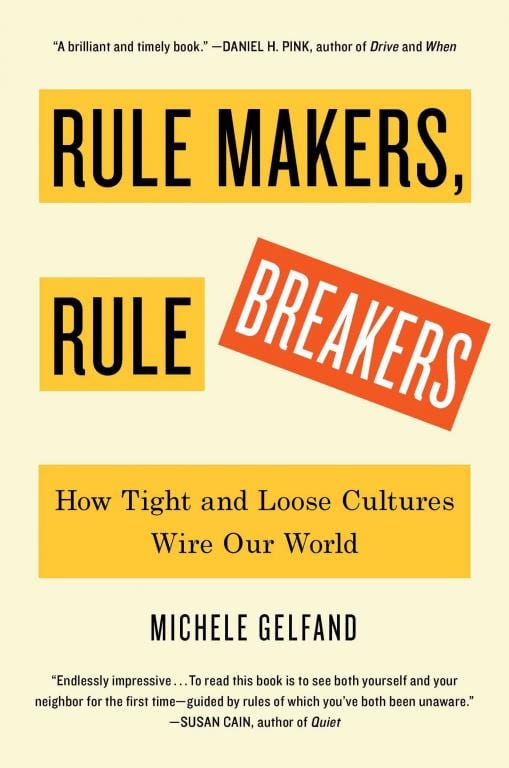How does the distinction between tight and loose cultures affect contextualization, churches, ministry strategy, and the inner workings of a mission organization? This is the first in a series to address this question. Specifically, this post considers the relationship between honor-shame and tight-loose cultures.
I previously introduced the topic of tight-loose cultures. The topic has been long overlooked by the missions community but deserves earnest reflection. For a brief overview, I’ll quote a summary from a recent dissertation:
tightness-looseness denotes the strength of norms and tolerance for norm deviance in a given cultural collective.
Norm strength denotes the number of unwritten and institutionalized rules that exist as well as the degree of social and institutional pressure that individuals feel to follow them, while tolerance for norm deviance denotes the amount of punishment that results when norms are violated.
By definition, tight cultural collectives have high norm strength and low tolerance for deviance, while loose cultural collectives have low norm strength and high tolerance for deviance.[1]
This aspect of cultural research is too significant for me to unpack it in a 1-2 blog posts. I want to post suggestions and questions to stimulate thought. I urge you to initiate dialogue with others with whom you work so that together we can develop helpful applications.
Also, you can watch the above TED talk from Michele Gelfand who explains tight and loose cultures.
Comparing Tight-Loose and Honor-Shame
Michele Gelfand, author of Rule Makers, Rule Breakers, explains in an interview,
Honor evolves when you need strong rules to regulate behavior. All honor cultures — or many — are tight, but not all tight cultures are honor cultures. You can also separate out what’s happening in the South from what’s happening around the world.
In the context of her work, she specifically describes cultures in which a person feels the need to defend one’s own reputation or status through some forceful means (e.g., insults, duals).
We see this play out in the “fame-shame” culture created by Western social media. Nowadays, any offense against a group’s moral sensibilities will be met with social sanctions, like doxing and lambasting in the media.
Traditional honor-shame societies are well-attuned to social expectations and adept at navigating customary rules of social interactions. Accordingly, people learn to exercise self- restraint (a trait typical of tight cultures) so as to modulate displays of anger and protect others’ face.
Honor and Tightness in Ancient Israel
In ancient Israel, a litany of rules codified social norms, governing nearly every aspect of life. Why? Deuteronomy 4:6-8 tell us what’s at stake when commands his people to obey his statutes.
Keep them and do them, for that will be your wisdom and your understanding in the sight of the peoples, who, when they hear all these statutes, will say, ‘Surely this great nation is a wise and understanding people.’ For what great nation is there that has a god so near to it as the Lord our God is to us, whenever we call upon him? And what great nation is there, that has statutes and rules so righteous as all this law that I set before you today?
The Lord’s own glory is at stake. This is the fundamental reason for the tightness of ancient Israel’s culture.
Paul in Romans 2:23-24 reinforces the link between honoring God and law-keeping,
You who boast in the law dishonor God by breaking the law. For, as it is written, “The name of God is blasphemed among the Gentiles because of you.”
And what happens when the people disregard his law? The Lord speaks to the priests in Malachi 2:2-3,
If you will not listen, if you will not take it to heart to give honor to my name, says the Lord of hosts, then I will send the curse upon you and I will curse your blessings. Indeed, I have already cursed them, because you do not lay it to heart. Behold, I will rebuke your offspring, and spread dung on your faces, the dung of your offerings, and you shall be taken away with it.
First, their neglect to keep the Law is interpreted as not honoring the Lord’s name. Second, as a part of their punishment, the Lord will spread dung on their face.
Does a Guilt Orientation Foster Looseness?
I have a hypothesis. I suspect some sort of relationship exists between having guilt-orientation and cultural looseness. Specifically, as (sub)cultures increasingly emphasize guilt, they are more likely to become increasingly loose, particularly with respect to morality and religious practice. At the very least, it appears a guilt-orientation contributes to cultural looseness.
Consider the history of Protestantism in the West. In places where the church, in practice, stresses both guilt over shame and individualism over collective identity, the church plays a smaller role in shaping the individual’s behavior. That is, churches do not influence an individual’s behavior simply through group pressure. Instead, the church’s stress on God’s absolute law fosters a sensitive conscience.
Following Luther’s example, Protestants increasingly appeal to their conscience when making moral decisions. One’s personal interpretations and judgments trump traditional church norms. Not surprisingly, individuals feel less connected to local churches, who accept their marginalized status compared to the conscience.
The above is an open meditation. I’m just thinking out loud.
My assumption is that a culture that emphasizes objective guilt will seek to foster psychological guilt. The latter activates the conscience. It seems to me that the shift of moral authority inward could easily veer towards looseness over time.
In the next post, I’ll address several other themes connect to tight-loose cultures, such as leadership development and serving on teams.
[1] Jesse Harrington. “Worlds unto Themselves: Tightness-Looseness and Social Class.” PhD Dissertation. University of Maryland, College Park. 2017, p. 4.












